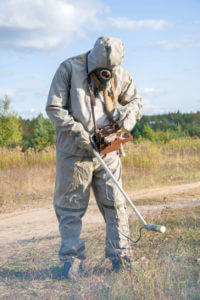
Radiation exposure is a serious health concern, particularly for downwinders, who are individuals affected by radioactive fallout from nuclear tests conducted during the mid-20th century. Many people living in Arizona, Nevada, or Utah during these tests suffered long-term impacts on their health.
However, programs, like the Radiation Exposure Compensation Act (RECA), aim to provide justice and benefits for those affected.
Let us break down the key health benefits available to downwinders suffering from radiation exposure. We will also explain the health conditions linked to exposure and look at available compensation.
Understanding Radiation Exposure
Radiation exposure occurs when the body absorbs harmful radiation from sources such as nuclear testing or radiation therapy. Exposure can damage cells, leading to genetic mutations and an increased risk of developing cancer and other health issues.
Downwinders were exposed to radiation between 1945 and 1962, primarily during above-ground nuclear tests conducted in Nevada. The radioactive particles traveled downwind, exposing people in nearby communities in Arizona, Utah, and Nevada to harmful levels of radiation.
Health Conditions Linked to Radiation Exposure
Radiation exposure has been linked to several severe health conditions. Many of these conditions take years to develop and can cause significant impacts on quality of life. Common health issues include the following:
Lymphoma and Leukemia
Both types of cancer are often associated with radiation exposure, as radiation can damage the bone marrow and lymphatic system.
Lung Cancer
Radiation exposure can increase the risk of lung cancer, particularly if combined with other factors like smoking.
Breast Cancer
Radiation exposure during childhood or early adulthood is strongly linked to an increased risk of breast cancer later in life.
Thyroid Disorders
Radiation exposure is known to impact the thyroid gland, sometimes leading to thyroid cancer or other disorders like hypothyroidism.
Multiple Myeloma
This cancer affects plasma cells in the bone marrow and is one of the common cancers linked to radiation exposure.
These health issues are devastating, but knowing the available support options is essential for affected individuals and families.
The Radiation Exposure Compensation Act (RECA)
RECA, short for the Radiation Exposure Compensation Act, was passed by Congress in 1990 to offer financial support to individuals who suffered health complications due to radiation exposure. The act recognizes downwinders, onsite participants of nuclear tests, and uranium miners as eligible recipients of compensation.
Eligibility for RECA Compensation
To qualify as a downwinder under RECA, you must meet the following criteria:
Geographic Residency
You must have lived or worked in specific counties in Arizona, Nevada, or Utah during designated periods of nuclear testing. For example, counties such as Mohave and Yavapai in Arizona, Clark and Lincoln in Nevada, and Washington in Utah are listed as eligible areas.
Duration of Exposure
You must have been present for at least 24 months between January 21, 1951, and October 31, 1958, or during July 1962.
Health Conditions
Eligible medical conditions include cancers such as leukemia (excluding chronic lymphocytic leukemia), multiple myeloma, and lymphomas, as well as other illnesses like primary cancer of the thyroid, salivary gland, and pancreas.
Financial Compensation
Those who qualify as downwinders under RECA can receive a one-time payment of $50,000. This compensation aims to help with medical expenses, therapies, and general financial support for those affected by radiation exposure.
RECA payments are not subject to federal income tax.
Health Benefits for Downwinders
Radiation exposure has caused severe long-term health consequences for many people. Health benefits provided to downwinders focus on addressing these radiation-related conditions and include access to healthcare resources, early diagnosis programs, and support groups.
Below are some key benefits and programs available.
Access to Healthcare
Programs such as the Radiation Exposure Screening and Education Program (RESEP) provide federally funded screenings and medical services to assess health risks for downwinders. Under RESEP, individuals can access:
- Comprehensive medical exams.
- Laboratory tests.
- Diagnostic imaging, like X-rays.
These screenings focus on identifying radiation-related diseases early, improving the chances of effective treatment.
Emotional and Psychological Support
Living with radiation exposure-related conditions can be emotionally taxing. Downwinders often benefit from participating in local support groups or counseling programs.
These programs aim to create a supportive community environment while addressing mental health concerns.
Community-Based Initiatives
Many community initiatives are focused on educating downwinders about their legal rights and healthcare options. For example, organizations such as advocacy groups and legal aid services help individuals file claims under RECA and ensure accurate documentation of exposure history.
Steps to Apply for RECA Compensation
Applying for RECA compensation requires attention to detail and proper documentation. Below are the steps to begin the process.
Gather Documentation
Assemble proof of residency during the specified periods and any health records that demonstrate radiation-related health conditions. For example, medical records showing a diagnosis of a qualifying cancer are essential.
Contact the Department of Justice (DOJ)
Submit your application to the DOJ. Use their official website to locate forms and instructions. Ensure your records meet all eligibility requirements.
Seek Legal Assistance
Consider working with an attorney familiar with RECA claims. They can guide you through the process, particularly if any aspects of your eligibility need verification.
Follow-Up Regularly
Once your application is submitted, maintain communication with the DOJ to track the review and approval timeline.
Get Compensation for Cancer Caused by Radiation Exposure in Arizona, Nevada, and Utah
Radiation exposure should not limit your access to healthcare, legal aid, or financial compensation.
If you or someone you know qualifies as a downwinder with covered cancer, take action today by visiting trusted advocacy groups, such as Downwinders®. Our experienced and compassionate providers can guide you in applying for RECA compensation.
For immediate assistance, you can contact our staff at 1 (855) 631-7197, available 24/7. We look forward to serving you!
 Downwinders® Claims
Downwinders® Claims